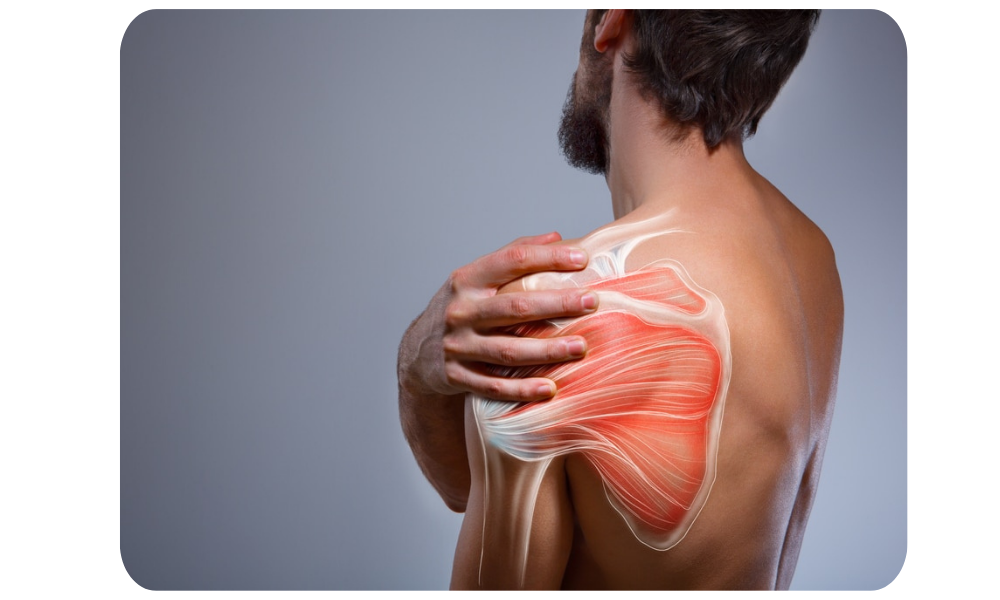Shoulder pain is common, especially among active individuals. Two common causes are shoulder impingement and rotator cuff tears. While they may present similarly, they differ in their underlying causes, mechanism of injury (MOI), and long-term outcomes. Understanding these conditions is essential for addressing pain early and avoiding surgery.
What Is Shoulder Impingement?
Shoulder impingement occurs when the rotator cuff tendons are compressed as they pass through the narrow space between the shoulder blade (acromion) and the top of the arm bone (humerus). This compression can cause irritation, inflammation, and pain, especially during overhead movements.
Causes:
- Repetitive overhead activities (like throwing, swimming, or lifting weights).
- Poor posture or movement mechanics.
- Muscle imbalances or weakness.
Who does it affect?
Shoulder impingement is common among athletes and people who frequently perform repetitive shoulder movements. It’s often seen in adults over 40, especially those who participate in recreational sports or physical labor.
What Is a Rotator Cuff Tear?
The rotator cuff is a group of four muscles and tendons that stabilize the shoulder joint. A tear occurs when one or more of these tendons are damaged, either through a sudden injury or from gradual wear and tear.
Causes:
- Acute injury from a fall or lifting something heavy.
- Degenerative wear and tear from repetitive movements or aging.
- Previous shoulder impingement left untreated, leading to tendon weakening.
Who does it affect?
Rotator cuff tears become more common with age, particularly in individuals over 50. However, athletes and individuals with repetitive shoulder strain are also at higher risk.
Why Early Care Is Essential
While both conditions can cause significant pain and limit mobility, being proactive in addressing these issues can prevent more serious problems. Left untreated, shoulder impingement can lead to chronic inflammation and even a rotator cuff tear, and untreated tears might require surgery later on.
At Soma Vita Physio, we believe in taking a proactive approach to shoulder health. Early intervention with physical therapy can help correct movement patterns, improve strength, and reduce inflammation—ultimately allowing you to avoid the need for injections or surgery.
Physical Therapists: Experts in Movement and the Musculoskeletal System
Physical therapists are uniquely positioned to help with shoulder pain because we are experts in both movement and the musculoskeletal system. We understand how different parts of the body work together and can identify the root cause of dysfunction. Our goal is not just to treat the symptoms but to restore optimal movement and function to your shoulder.
Through manual therapy, specific strengthening exercises, and movement re-education, we address the underlying causes of your pain to help you recover holistically. Whether you’re dealing with impingement or a rotator cuff tear, a customized physical therapy plan can make a significant difference in your recovery.
Soma Vita Physio’s Holistic Mission
At Soma Vita Physio, our mission is to help people heal holistically, without relying on injections or surgery. We believe in the body’s natural ability to recover when given the right tools. Our comprehensive approach focuses on long-term health, helping you avoid future injury and get back to the activities you love.
If you’re experiencing shoulder pain, don’t wait for it to get worse. Be proactive—reach out to us today and take the first step toward recovery.




